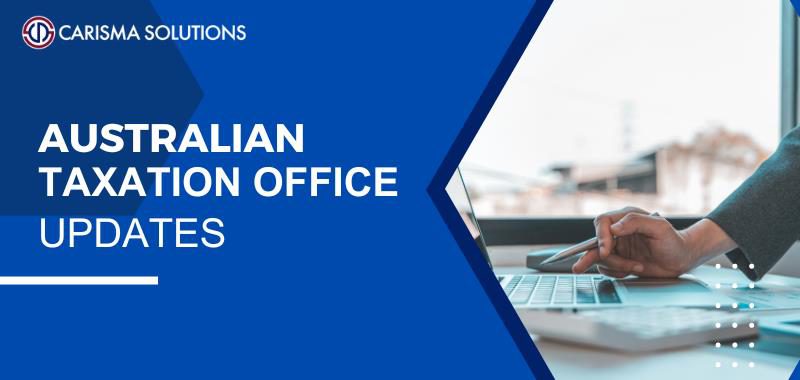Alert for changes made to your SMSF
If you make changes to your SMSF ATO will send you an alert for changes made to SMSF information.
ATO may send you an alert via email or text message when:
>you register a new SMSF
>you change an existing SMSF’s
- Financial institution account details
- Electronic Service Address (ESA)
- Authorised contact
- Members
While ATO may contact you by text or email (or both) ATO will never ask you to reply by text or email and provide any personal information such as your TFN or personal banking details.
If you receive a text or email about a new SMSF registration or changes made to your existing SMSF and you are unaware of the changes, you should contact the other trustees or directors of your SMSF and authorised representatives to check if they have made the changes.
If you’re still concerned about a new SMSF registration or changes that have been made to your existing SMSF, you should contact ATO on 13 10 20.
To safeguard your super, it is important for you to keep your email and mobile phone details up to date with ATO, as this will ensure you continue to receive ATO alerts.
Prohibited SMSF Loans
Loans to members continue to be the highest reported contravention of the superannuation laws that we see in Auditor Contravention Reports (ACR) lodged by Self-Managed Super Fund (SMSF) auditors. These loans comprised 16% of all reported breaches for the 2019 to 2022 audit years.
It’s important to remember SMSF trustees cannot loan money or provide other forms of financial assistance to a member or relative. If they do, they can incur a penalty of up to $18,780. They may also be disqualified as a trustee which means their name is published online and they can no longer operate their fund or another self-managed super fund in the future.
An SMSF trustee also cannot loan money to a related party such as a business where the value of the loan exceeds 5% of the value of the fund’s total assets. This is a prohibited in-house asset investment which is a contravention.
If the SMSF’s in-house assets exceed 5% of the total value of its assets at the end of the financial year, the trustee must prepare a plan to reduce their in-house assets to less than 5%. The plan must be prepared and implemented by the end of the following financial year and failure to do so will result in a contravention.
It is important you understand the rules to avoid making prohibited loans from your SMSF.
If you have made a prohibited loan from your SMSF it must be rectified as soon as possible by ensuring the loan is repaid. You should contact your appointed SMSF professionals to help.
If you can’t rectify the breach, you should use our SMSF early engagement and voluntary disclosure service to engage with us early. If you do this before we start an audit and take compliance action, we take your disclosure into account in determining what other actions we need to take.
How we deal with non-compliance has information on the types of compliance action we might take where we see breaches of the super laws.
You can also visit restrictions on investments to see the different types of contraventions.
Non-Arm’s Length Income changes for Super Funds
The Government has introduced changes to the Non-Arm’s Length Income (NALI) provisions which apply to expenditure incurred by super funds.
This measure is not yet law.
Treasury Laws Amendment (Support for Small Business and Charities and Other Measures) Bill 2023External Link was introduced on 13 September 2023 and will:
limit the amount of Non-Arm’s Length Income arising from a general Non-Arm’s Length expense for Self-Managed Superannuation Funds and small Australian Prudential Regulation Authority (APRA) regulated funds to twice the level of a general expense.
>exempt large APRA regulated funds from the NALI provisions for both general and specific expenses of the fund.
>exempt expenditure that occurred prior to the 2018–19 income year.
>apply from 1 July 2018.
Financial advice registration requirement extended
ASIC has registered the ASIC Corporations (Amendment) Instrument 2023/730 (the “Amending Instrument”). The Amending Instrument puts in place further interim measures to delay the requirement (the “Registration Requirement”) for “relevant providers” to be registered with ASIC as a precondition for providing personal advice (“Financial Advice”) to retail clients about relevant financial products.
By way of background, the requirement for relevant providers to be registered was introduced by the Financial Sector Reform (Hayne Royal Commission Response — Better Advice) Act 2021 (“Better Advice Act”). The registration provisions, as inserted by the Better Advice Act, staggered commencement dates so that Australian financial services (“AFS”) licensees and relevant providers could continue providing Financial Advice without being registered up to 1 January 2023. Subsequent steps were taken by the Government to delay the Registration Requirement to 1 October 2023.
The Amending Instrument provides for a further delay to the Registration Requirement to 1 February 2024 in order to allow:
- Parliament to further consider the Treasury Laws Amendment (2023 Measures No. 1) Bill 2023 (“TLAB 1”), which gives ASIC the power to use assisted decision-making systems when processing registration applications and facilitate multiple registration of relevant providers;
- ASIC to implement TLAB 1 if TLAB 1 is enacted;
- industry to understand its rights and obligations concerning the Registration Requirement; and
- AFS licensees to register their relevant providers with ASIC prior to the Registration Requirement commencing.




